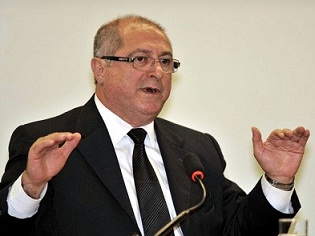The tax burden in Brazil to Telecommunications is one of the highest in the world. The Communications Minister, Paulo Bernardo, recently acknowledged this fact in a newspaper interview. We reproduce below an editorial of the “O Estado de São Paulo” newspaper, published on May 25, 2012, that analyzes this problem quite well.
That the service of telecommunications in Brazil is expensive, everybody knows. The news is that the Communications Minister, Paulo Bernardo, admitted in an interview with Eduardo Rodrigues e Anne Warth, for “O Estado de São Paulo” last Sunday.
In a GSMA study, with 50 developing nations, Brazil is the third in high taxation of telecommunications service. Just below Turkey and Uganda.
 The taxes are the” bad guy”. Affect them, directly, the Contribuição para o Financiamento da Seguridade Social (Cofins) – in 3% of the gross income the telecommunications companies; Pis-Pasep, 0,65%; at least 25% of the Imposto sobre Circulação de Mercadorias e Serviços (ICMS), depending of the State; for the Universalization Fund (Fundo de Universalização dos Serviços de Telecomunicações – Fust) is 1% and 0,5% for the Technology Development Fund (Fundo para o Desenvolvimento Tecnológico das Comunicações -Funttel). Giving a total of 30,15%, of gross income in the telecommunications companies, but correspond to 42,16% of net income.
The taxes are the” bad guy”. Affect them, directly, the Contribuição para o Financiamento da Seguridade Social (Cofins) – in 3% of the gross income the telecommunications companies; Pis-Pasep, 0,65%; at least 25% of the Imposto sobre Circulação de Mercadorias e Serviços (ICMS), depending of the State; for the Universalization Fund (Fundo de Universalização dos Serviços de Telecomunicações – Fust) is 1% and 0,5% for the Technology Development Fund (Fundo para o Desenvolvimento Tecnológico das Comunicações -Funttel). Giving a total of 30,15%, of gross income in the telecommunications companies, but correspond to 42,16% of net income.
There is still the Enforcement Fee (Taxa de Fiscalização – Fistel). In the states of Alagoas, Bahia, Ceará, Maranhão, Rio Grande do Norte e Sergipe the ICMS rate is 27%. In Pernambuco, Goiás, Mato Grosso do Sul, Paraná, Mato Grosso, Pará, Rio de Janeiro, Paraíba e Amazonas, it was 25%, but last month, rose up to 30%. The champion State is Rondônia, over there the ICMS in telecommunications services is 35%.
Telecommunications is one of the major sources of revenue for states, next to the ICMS on electric power, fuels, beverages and automobiles. It is easy to charge, because the tax is collected by a small number of companies. The consumer “does not even notice”, says the Minister.
Proposals to reduce these taxes have been made, but do not go very far in Congress. Luiz Guilherme Schymura, former president of Agência Nacional de Telecomunicações (Anatel), used to say that the taxes create a “colossal deficiency” in the sector.
Since Dilma Rousseff has the majority in Congress, she can propose – and maybe achieve – a cut down of the rates. Similar to what she wants to do with energy. The Communications Minister suggests to limit the ICMS to 25%, rate in force already in 11 State, as Minas Gerais, Rio Grande do Sul, Santa Catarina e São Paulo. “We have to organize and gradually relieve, I do not want to unbalance the financial market”, said him.
Since there are enough resources in Fust, Funttel and Fistel, there is no excuse not to reduce federal taxes. That is to say, the government use some of the collected money to achieved budget surplus of 3,1% of Gross Domestic Product (GPD) in which committed.
The high cost of telecommunications services is also because of distortions on the cost of the pre-paid service. While in post-paid plan the client spends R$ 54,33 for 100 minutes, in pre-paid service the cost is R$ 135,37. The taxes are R$ 23,36 and R$58,20, respectively.
The main cost is the interconnection fee –the payment that operators receive to terminate the call. In general, pre-paid clients just receive calls. As the Minister noted, the operators have clients who don’t have money to buy credits to make a call, they receive calls because they are paid by the person who originated it.
The Minister Paulo Bernardo said that “if we cut down the taxes, the market will grown 250%, instead 130%, as in the last 15 months, it will explode”. This was already verified and it does not apply just in telecommunications, but in almost every activities. If the companies make more money, the tax balance won´t be affected, in spite of lower fees.